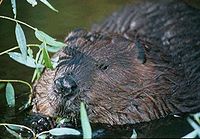
Ghost of invasion past: legacy effects on community disassembly following eradication of an invasive ecosystem engineer
Sign Up to like & getrecommendations! Published in 2017 at "Ecosphere"
DOI: 10.1002/ecs2.1711
Abstract: By changing ecosystem processes and altering the physical landscape, invasive ecosystem engineers can have substantial impacts on ecosystem functions and human economies and may facilitate other non-native species. Eradication programs in terrestrial and aquatic systems… read more here.
Keywords: invasive ecosystem; eradication; invasion; ecosystem engineer ... See more keywords

Inoculation of an ecosystem engineer (Earthworm: Lumbricus terrestris ) during experimental grassland restoration: Consequences for above and belowground soil compartments
Sign Up to like & getrecommendations! Published in 2018 at "Applied Soil Ecology"
DOI: 10.1016/j.apsoil.2017.12.021
Abstract: Abstract Although soil organisms might strongly affect the dynamics and composition of natural vegetation, relatively few studies have tried to in-situ manipulate soil fauna, especially in restoration ecology. The objective of this study was thus… read more here.
Keywords: lumbricus terrestris; plant; ecosystem engineer; soil ... See more keywords

Steppe Marmot (Marmota bobak) as ecosystem engineer in arid steppes
Sign Up to like & getrecommendations! Published in 2020 at "Journal of Arid Environments"
DOI: 10.1016/j.jaridenv.2020.104244
Abstract: Abstract Burrow-dwelling rodents are often considered ecosystem engineer species in arid environments. They create distinct habitat patches by building burrows: they move large amounts of soil, mix soil layers and change soil properties locally. Our… read more here.
Keywords: vegetation; ecosystem engineer; marmot marmota; steppe marmot ... See more keywords

The magnitude of behavioural responses to artificial light at night depends on the ecological context in a coastal marine ecosystem engineer.
Sign Up to like & getrecommendations! Published in 2020 at "Marine environmental research"
DOI: 10.1016/j.marenvres.2020.105238
Abstract: Artificial light at night (ALAN) is one of the most extensive human geographic disturbances to wildlife. ALAN can have ecological and evolutionary effects on individual organisms, which in turn can affect populations, communities and ecosystems.… read more here.
Keywords: light night; artificial light; ecosystem engineer; alan behavioural ... See more keywords